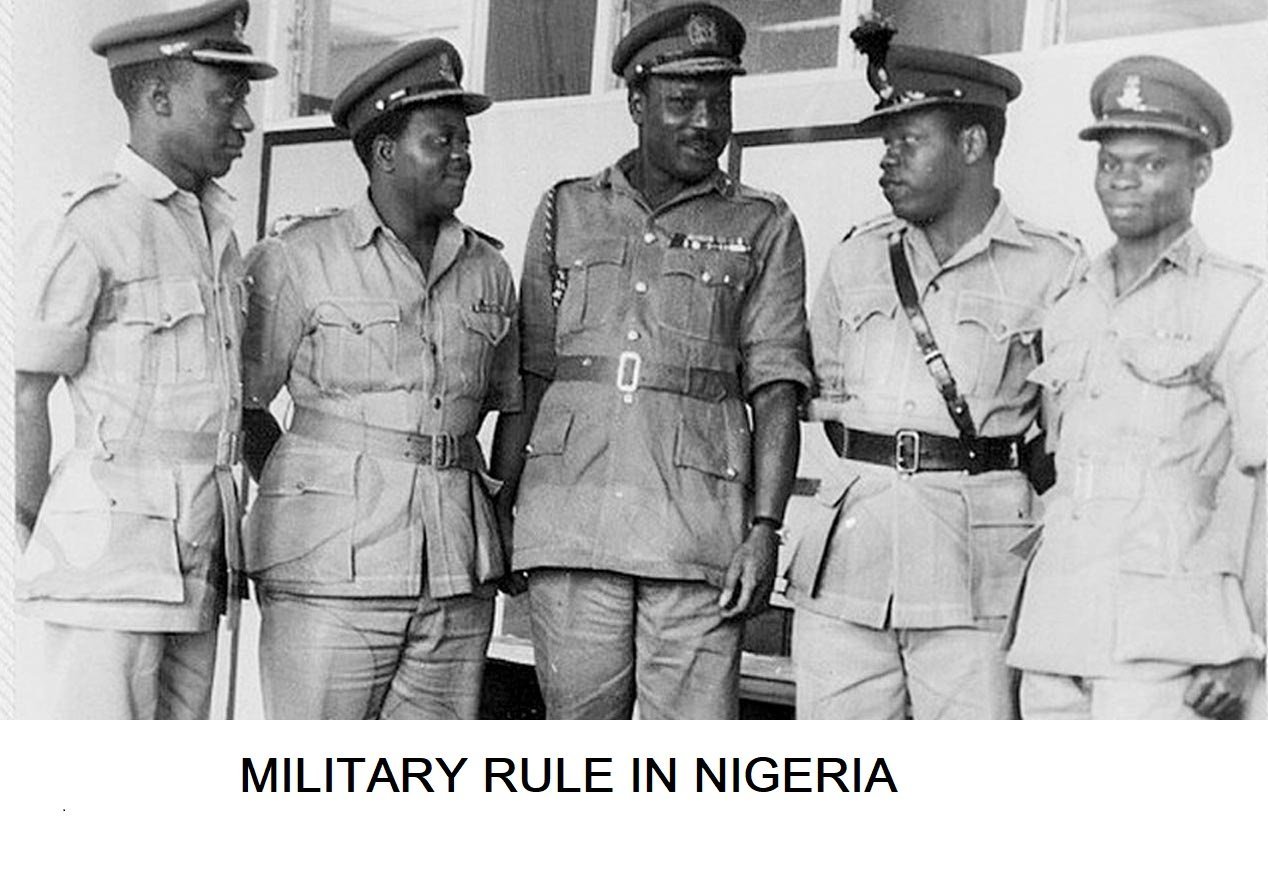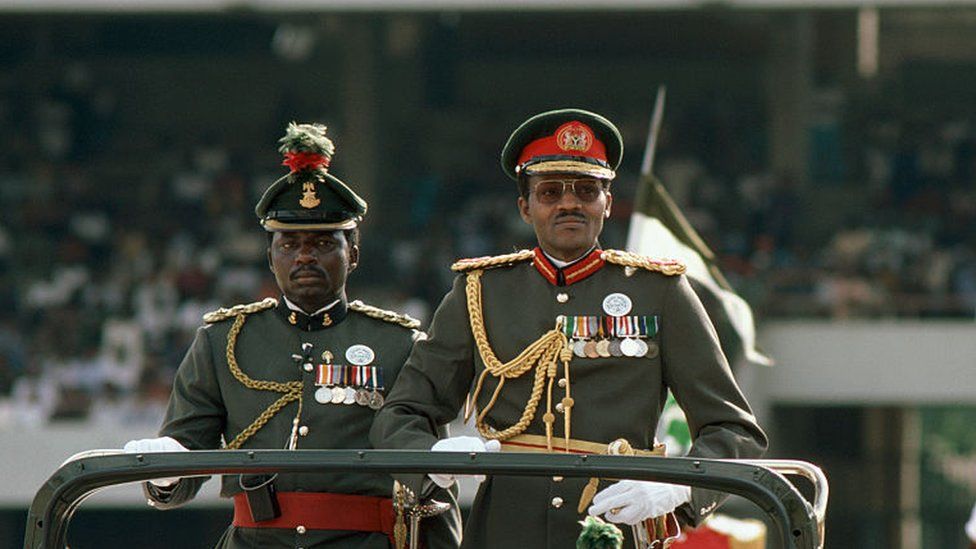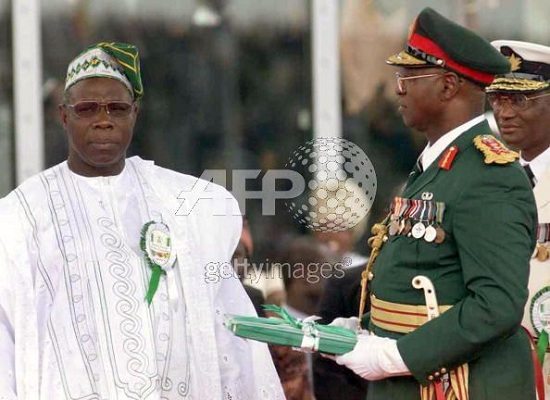Back to: GOVERNMENT SS3
Welcome to class!
In today’s class, we will be talking about the military rule in Nigeria. Enjoy the class!
Military Rule in Nigeria

Historical background
Nigeria as a country experienced her first military coup on the 15th of January, 1966 led by Major Chukwuma Nzeogwu alongside other majors in the army. It was a bloody coup because key political leaders of Nigeria were killed such as the Prime Minister, Sir Abubakar Tafewa Balewa, S.L Akintola the Premier of Western religion and other prominent leaders of Nigeria.
Major-General Aguyi Ironsi took the mantle of leadership of Nigeria, his tenure was a short one. A counter-coup took place on July 29, 1966, and Aguyi Ironsi was killed and this brought Lt., Colonel Yakubu Gowon, into power. He spent nine years in power and was removed by Brigadier Murtala Muhammed. Murtala spent 200 days in office and was assassinated by Lt. Colonel Dinka on February 13, 1976.
General Olusegun Obasanjo became the Head of state. He returned power to the civilian government but in the second attempt of civilian rule, there was a coup that brought Major-General Muhammed Buhari into power in 1983.

Major General Ibrahim Babangida took over power on August 27, 1985. In 1993 there was a move to return power to a civilian government but the election result was annulled. There was an interim government headed by Chief Ernest Sonekan. Lt. General Abacha sacked the interim government and ruled till his death on 8th June 1998. General Abdulsalami Abubakar took over power and on 29th May 1999 power was given to the civilian government headed by Chief Olusegun Obasanjo.

Reasons for military rule
- Tribalism in Nigerian politics: So many tribal sentiments played out in the politics of the first republic where people paid loyalty to their regions rather than to the nation Nigeria.
- Disputes over census result: Census conducted in 1962 and 1963 were not accepted by some regions in Nigeria and this created a huge problem in Nigeria.
- Corruption and nepotism: There was a high rate of corruption and favouritism in the government of the day. Funds were not used appropriately.
- Crises in the country: There was the general crisis of Action Group in 1962 and also general election crisis of 1964 over the election result and this gave rise to military intervention.
- Low economic development: There was a gap between the rich and the poor.
General evaluation
- State three other countries where military coup took place in the world.
- Mention the dates of military coups in Nigeria.
- Mention three reasons for military intervention in Nigeria.
Assignment
- Identify and explain five other reasons for military intervention in Nigeria.
In our next class, we will be talking about Weakness of Military Rule in Nigeria. We hope you enjoyed the class.
Should you have any further question, feel free to ask in the comment section below and trust us to respond as soon as possible.

what led to the death of Ibrahim Babangida
what is the meaning of coup
what is the meaning of coup